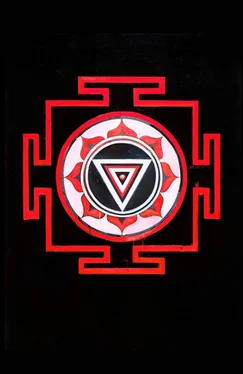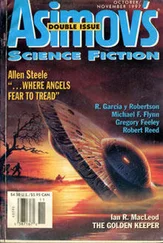When you do enough time in a cell, you learn to walk, because walking stills the voice inside, calling you to run.
Don’t you dare give up on me.
I walked. I drank some more. The music got louder, or maybe it just sounded louder. I was riding a Bob Marley wave to a brighter shore, and I wanted to look at Karla’s smile, and I realised that I didn’t have a photograph of Karla.
I searched everything I had without success, and decided that a joint might help. The joint found lots of interesting stuff I didn’t know I had, including a friendly cricket that didn’t sing, which I relocated to the balcony, but there was no picture of Karla.
I was getting a little high, and the first thing I wrote in my journal, after the fruitless search, was a question.
Is Karla real?
I wrote a lot of other things. I recited poetry. When, in disgrace with fortune and men’s eyes , I began, and I got to like him with friends possessed , when someone seemingly possessed started banging on the door.
I went on with my war dance for the dead, and the banging stopped, and the drumming in the music thumped me around the room, and I could write again.
I wrote pages of notes on Nazeer. Departed loved ones never leave the heart, but the living picture of them fades, paled in memory’s river. I wanted to write Nazeer, before I couldn’t. I wanted to write those eyes, so often like the eyes of an animal, a hunting animal, unknowable and capable of anything: those mountain eyes, born in sight of the planet’s peak, that were so seldom lamps inside the cave of his tenderness.
I wrote the humour, hidden in ravines of his grimacing. I wrote the shadow that covered his face in any light, as if the ashen end was stamped on his face from the beginning.
I wrote his hands, those Komodo claws, the dark earth of early labour years branding them for life: Martian canals of lines and wrinkles on his knuckled fingers, some of them as deep as cuts from a knife.
I wrote Tariq. I wrote about the little beads of sweat that broke out on his lip whenever he was pretending to be someone else. I wrote the precision in his movements, as if his life was a tea ceremony that never ended.
And I wrote how handsome he was. There was a handsome man already growing in the awkward boy: a face that would make girls think about him at least twice, and a brave eye that would challenge every man he met.
I tried to write him, to keep him, to save him, and Nazeer, in words that might live.
I wrote until something ran out, or everything ran out, and I reached that place where words stop and thinking stops and there’s only emotion, feeling, a lonely heartbeat sounding through colder depths of the ocean inside, and I slept, dreaming of Karla, pulling me from a house on fire, her kisses burning love on my skin.
I woke to find that it wasn’t Karla’s kisses burning my skin: I’d fallen asleep with my face on a statue of Lord Shiva, and His trident had carved a mark on my cheek. I hit the shower and washed up again, determined to keep the door locked for a couple of days, and maybe continue my wake for the dead. But when I dried off and looked in the mirror, the trident mark was still there. It seemed as if it would last a few days before fading. And I knew, staring at that folly, that if I got so wasted that I branded my own face, when there were enemies who’d happily scar it for me, it was time to stop getting wasted.
And with that sobering thought, it occurred to me that Karla might’ve left her fetish party early, and could be stranded somewhere in the Island City, because of the rioting. I dressed in battle gear, did a pocket check, and walked into the entry hall. There was a barricade of furniture against the door leading to the stairs. It was common practice in hotels during a police lockdown of the city, in those years, to keep guests safe on one side of a barricade, and looters or rioters on the other.
‘The whole of South Bombay is locked down,’ Jaswant said, reading his newspaper. ‘I was lucky to get this newspaper. And no, you can’t have it until I’m finished.’
‘Where?’
‘You can’t have it anywhere. There’s a line before you, baba.’
‘I mean, where’s the lockdown?’
‘Everywhere.’
A lockdown meant that I couldn’t travel anywhere in the city during daylight: nobody could.
‘For how long?’
‘What the fuck do you care?’
‘Fuck it, Jaswant. What’s your hunch? One day, or four?’
‘Given all the fires and rioting last night, I’ve got the bookies on three days,’ he replied. ‘And I repeat, what the fuck do you care?’
‘Three days? I don’t think I’ve got enough inspiration for three days.’
‘Inspiration!’ Jaswant said, putting down the newspaper and swinging his swanky new executive chair round to face me.
He threw a switch on his desk, and a panel slid open in the wall beside me. It was a secret cupboard filled with alcohol, cigarettes, snack foods, tiny cereal packets, cartons of milk, boxes of sugar cubes, pots of honey, tuna fish, baked beans, matches, candles, first aid kits, and indiscernible things pickled in jars.
He threw another switch, and a cascade of tiny coloured lights rotated around the cupboard.
‘Hey,’ he asked, peering at the trident on my face, illuminated by his coloured lights. ‘Do you know you’ve got a Trishula mark on your face?’
‘Let’s not get too personal, Jaswant.’
He waved a hand at his cupboard of pleasures.
‘Always happy to keep things on a business level, baba,’ he said, raising his eyebrows in sequence. ‘There’s music, too.’
He threw another switch, and Bhangra dance music stomped out of speakers on his desk. The paperweight danced with the stapler on the glass-topped surface, jittering back and forth across Jaswant’s reflected smile.
‘We Sikhs have learned to adapt,’ he shouted, over the music. ‘You wanna survive World War Three, move into a Sikh neighbourhood.’
He let the song play to the end, and it was a pretty long song.
‘I never get tired of that,’ he sighed. ‘Wanna hear it again?’
‘No. Thanks. I wanna buy your booze, before Didier does.’
‘Didier’s not here.’
‘I don’t wanna take the risk.’
‘That’s… just about the smartest thing you ever said to me.’
‘People don’t lay smart on you, Jaswant, because your attitude is wrong.’
‘Fuck attitude,’ he said.
‘The prosecution rests.’
‘Attitude doesn’t pay my rent.’
‘Wrap up some rent for me, Jaswant.’
‘Alright, alright, keep your wrinkly fucking shirt on, baba,’ he said, joining me at the window and bagging the supplies I pointed out.
‘Have you got any pre-rolled joints?’ I asked.
‘Sure, I’ve got fives, tens, fifteens -’
‘I’ll take them.’
‘What them ?’
‘ All of them.’
‘ Chee, chee! Didn’t anyone ever teach you the art of business, man?’
‘Gimme the stuff, Jaswant.’
‘You don’t even know what it costs, man.’
‘How much does it cost, Jaswant?’
‘A fucking bundle, man.’
‘Done. Wrap it up.’
‘There you go again. You’ve got to fight for the price , or it isn’t really the price . You’re cheating me , when you don’t bargain me to the fair price, even if I come out in front. It’s how it’s done, man.’
‘Tell me the fair price, Jaswant, and I’ll pay that .’
‘You’re not getting me,’ he said patiently, teaching an ape. ‘The game, for both of us, is to discover the fair price. That’s the only way to know what anything costs. If we don’t all do that, we’ll be fucked. It’s spoilers like you who mess everything up, because you’ll pay anything, for anything.’
Читать дальше












